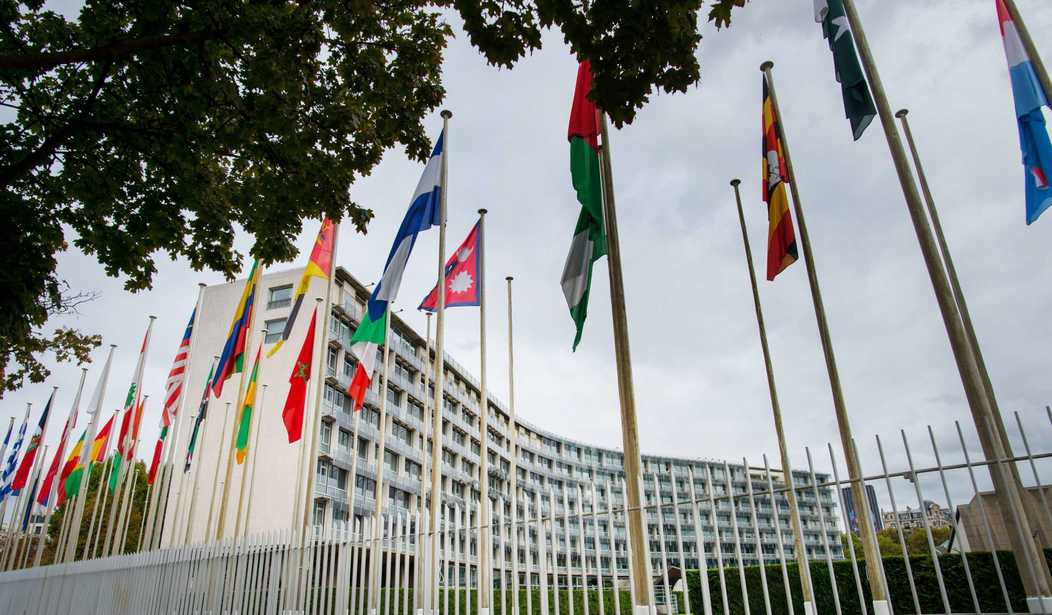WASHINGTON — Citing bias against Israel, the Trump administration today withdrew the United States from United Nations Educational, Scientific and Cultural Organization but has asked the body’s director if the U.S. can stick around as an observer.
The U.S. won’t withdraw until Dec. 31, 2018.
In July, UNESCO declared the West Bank town of Hebron to be a world heritage site belonging to Palestine. “The centre of interest of the town was the site of Al-Ibrahimi Mosque/The tomb of the Patriarchs whose buildings are in a compound built in the 1st century AD to protect the tombs of the patriarch Abraham/Ibrahim and his family,” reads the UNESCO description. “This place became a site of pilgrimage for the three monotheistic religions: Judaism, Christianity and Islam.”
In protest, Israeli Prime Minister Benjamin Netanyahu yanked $1 million in funding from the UN and redirected the funds toward preservation projects on Hebron’s Jewish history. He slammed it as “another delusional UNESCO decision” as the Palestinian Authority hailed victory in their “diplomatic battle.”
State Department press secretary Heather Nauert said the decision “was not taken lightly, and reflects U.S. concerns with mounting arrears at UNESCO, the need for fundamental reform in the organization, and continuing anti-Israel bias at UNESCO.”
“The United States indicated to the Director General its desire to remain engaged with UNESCO as a non-member observer state in order to contribute U.S. views, perspectives and expertise on some of the important issues undertaken by the organization, including the protection of world heritage, advocating for press freedoms, and promoting scientific collaboration and education,” she added in a statement.
In a lengthy reaction, UNESCO Director-General Irina Bokova expressed “profound regret” at Secretary of State Rex Tillerson’s notification, stating “universality is critical to UNESCO’s mission to strengthen international peace and security in the face of hatred and violence, to defend human rights and dignity.”
“In 2011, when payment of membership contributions was suspended at the 36th session of the UNESCO General Conference, I said I was convinced UNESCO had never mattered as much for the United States, or the United States for UNESCO,” Bokova said. “This is all the more true today, when the rise of violent extremism and terrorism calls for new long-term responses for peace and security, to counter racism and antisemitism, to fight ignorance and discrimination.”
“…The partnership between UNESCO and the United States has been deep, because it has drawn on shared values.”
She noted the World Heritage sites located in the United States and listed values of the organization that she believes are shared by the American people.
“At the time when conflicts continue to tear apart societies across the world, it is deeply regrettable for the United States to withdraw from the United Nations agency promoting education for peace and protecting culture under attack,” Bokova continued. “This is a loss to UNESCO. This is a loss to the United Nations family. This is a loss for multilateralism.”
The American Israel Public Affairs Committee applauded the State Department’s move, noting last year’s UNESCO resolution “outrageously attempting to undermine historic Jewish and Christian ties to the Old City of Jerusalem.”
“By adopting such a one-sided animus toward the Jewish state, UNESCO undermines efforts to seek a peaceful resolution of the Israeli-Palestinian conflict by giving support to forces in the Palestinian community that reject reconciliation. America previously withheld funds from UNESCO when the organization admitted Palestine as a member, thereby circumventing the peace process,” AIPAC said in a statement.
“We appreciate that the United States has taken a stand against efforts to delegitimize and isolate our ally, Israel. We hope that UNESCO will respond to this action by changing course and stopping its unconscionable bias against Israel.”









Join the conversation as a VIP Member